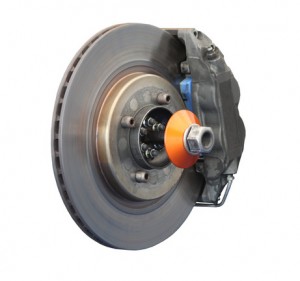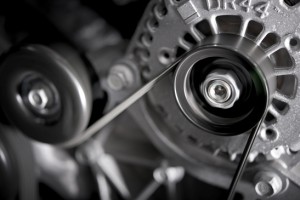Every once in a while, new technology is introduced into the automotive world, meaning new concepts are added to the world of purchasing cars and maintaining them over a lifetime.
Regenerative braking systems is one of those concepts. Regenerative braking was introduced when hybrid technology was introduced to the world of cars.
On a normal car, when you apply the brakes, the energy and heat of the action of braking dissipates and is wasted away. Not so with regenerative braking. Instead, when you apply the brakes, regenerative braking uses a mechanism that allows the vehicle to slow down while converting the resulting kinetic energy that is normally wasted into a useful form of energy. The energy and heat that is dissipated is instead converted and returned to the battery and reused in other systems throughout the vehicle. Because of this action, the battery is constantly being recharged, meaning the hybrid vehicle can go further on a charge without having to be returned to its outlet.
The concept of regenerative braking is still new and confusing to many. Imagine your car and what happens to it once you apply the brakes. The brake pads slowly apply pressure, creating heat from the friction of the pads and the tires slowing down. Energy is accumulated as the brake pads wear against the rotors. This energy is transferred to the vehicles electric motor, charging the battery in the process.
 Regenerative braking does however have its limitations. Typically this system is only available on the wheels that drive the vehicle – so for a front wheel driven vehicle, it only applies to the two front wheels. This means your vehicle is only generating power on these two wheels. Because more action and power is associated with these wheels, they will have more wear and tear on both the wheels and tires, and on the brakes and brake pads. Which means you may be replacing tires, brakes and brake pads on a more frequent basis than those on the rear of the vehicle.
Regenerative braking does however have its limitations. Typically this system is only available on the wheels that drive the vehicle – so for a front wheel driven vehicle, it only applies to the two front wheels. This means your vehicle is only generating power on these two wheels. Because more action and power is associated with these wheels, they will have more wear and tear on both the wheels and tires, and on the brakes and brake pads. Which means you may be replacing tires, brakes and brake pads on a more frequent basis than those on the rear of the vehicle.
Regenerative braking works best at greater speeds. The more friction needed to stop the vehicle, the more energy is created. So to get the most benefit from this system, a person should be more apt to driving at high speeds on an ongoing basis than slower, city driving.
Have any questions about your regenerative braking system? Stop by or give us a call. We can make sure your car is in top condition, no matter how old or new, green or otherwise.

 Some cars are fancy, some are not; but they all have one thing in common…they get us where we want to go. Unfortunately, we tend to underestimate the needs of the car until much too late. Sometimes this means we are stuck with a costly bill that could be avoided, and other times, this means we are stranded at the side of the road wondering what to do. If you want to keep your car in good working condition, start being proactive in your car repair needs.
Some cars are fancy, some are not; but they all have one thing in common…they get us where we want to go. Unfortunately, we tend to underestimate the needs of the car until much too late. Sometimes this means we are stuck with a costly bill that could be avoided, and other times, this means we are stranded at the side of the road wondering what to do. If you want to keep your car in good working condition, start being proactive in your car repair needs.